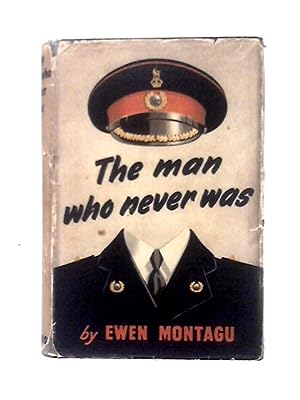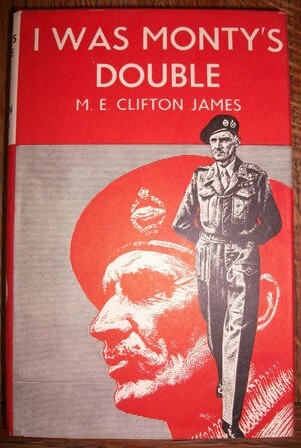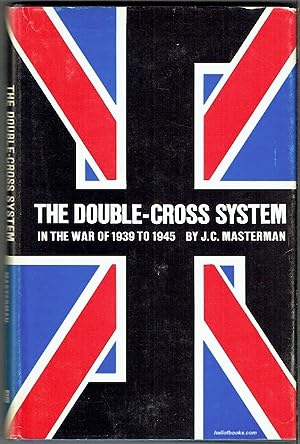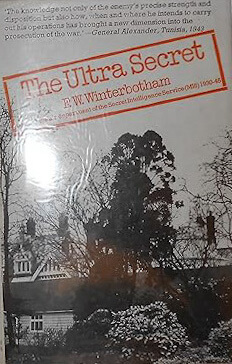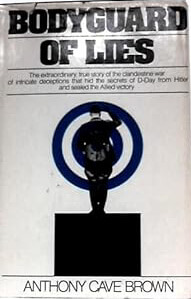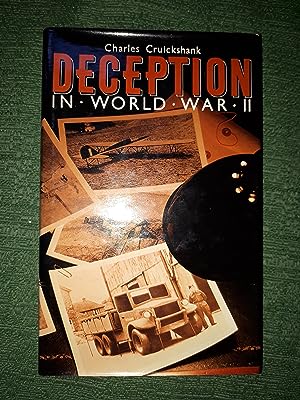
 |
Floor Plan |  |
The Dennis Wheatley 'Museum' - Dennis Wheatley in World War II: a supplement
The cloak of secrecy is gradually lifted...

Bill Baumer writes to DW of 'Bodyguard' saying that 'It's a book I'd have preferred you had done'
Click on the image to enlarge For a transcript click here
The lifting of the veil of secrecy over some of the Government's secret operations began in 1950, with the publication of Duff Cooper's 'Operation Heartbreak' - the first account of 'The Man Who Never Was', which was followed by Ewen Montagu's own account of the operation in 1953.
Both Bevan and Wheatley were horrified that Duff Cooper wrote his book, and astonished that he was allowed to publish.
DW wrote how he first learnt of the proposed book when visiting Bevan's house in the summer of 1950:
... Having gone into the house to renew our drinks, Johnny returned with them, handed me a slim volume and said, 'Dennis, what d'you think of that?'
The title of the book was Operation Heartbreak, and it was by Duff Cooper. Inside it was a letter (which later Johnny let me have for my collection). It read:
Dear Bevan,
I thought it might amuse you to see an advance copy of the book about which we were talking the other evening. It won't be out until the beginning of November, and if you spot any particularly foolish blunder and would let me know soon, there will still be time to make an alteration.
Yours ever,
Duff Cooper.
It was, of course, the story of Mincemeat. Beautifully written and charmingly told. But oh, what a breach of security!
A few nights earlier, Duff Cooper had seen Johnny in White's, casually mentioned that he had written the book and expected soon to have advance copies of it. Johnny realized at once that, by that time, what with publishers' readers, printers' type-setters, proof readers and so on, scores of people must have read it, so this 'most secret' operation was already blown and nothing could be done.
Duff Cooper was at that time British Ambassador in Paris and, moreover, a close friend of Churchill's. How could one possibly prosecute a person in that position? But if I had written that story for publication I would have found myself in the Tower of London and soon after in Brixton prison, doing a three-year stretch for having infringed the Official Secrets Act.
The book, justifiably, proved a bestseller. With its publication the story was free for all. Montagu wrote his own version, The Man Who Never Was, out of which a film was made.
Duff Cooper and Ewen Montague's books were followed in 1954 by Clifton Webb's 'I was Monty's Double', with 'The Man Who Never Was' being turned into a highly popular film in 1956 and 'Monty's Double' being filmed in 1958.
These operations were clearly seen as 'one-offs' and allowed special treatment, because when Dudley Clarke began writing the story of 'A Force' for publication in 1953, he was quickly muzzled. This was in retrospect a tragedy, because his book 'Seven Assignments' which came out in 1948 and which told the story of his war up to the date he became involved with Deception Planning, was extraordinarily good, and the country thereby lost a book on 'A Force' and the origins of British Wartime Deception which would have been absolutely without peer and of enormous historical significance.
When DW sought to publish 'Stranger Than Fiction' in 1959, which dealt exclusively with the papers he wrote while a civilian, he had to fight hard for publication, and it appears that Wingate had similar difficulties with the part of his autobiography which dealt with Deception Planning. Indeed, as shown in an earlier exhibit, even the Imperial Defence College was forbidden to talk about Deception Planning after the war, and as late as 1968, the Official Historian was ignorant of what the initials 'LCS' even stood for.
Further information only started to become available to the public in 1972, when J C Masterman published his book 'The Double Cross System', which he did first in the USA, and without the approval of the British Government. This revealed for the first time the role played by wartime double agents.
Next came F. W. Winterbotham's 'The Ultra Secret' in 1974, which broke the story of how the German codes were cracked.
Anthony Cave Brown published 'Bodyguard of Lies' in 1975, and Charles Cruickshank his 'Deception in World War II' in 1979, but both were hampered by limited access to official documents.
DW's own account of his life as a Deception Planner was only published in 1980 (see next Exhibit) while Michael Howard's 'British Intelligence in the Second World War (Volume 5 of the Official History) did not come out until 1990, and it was only in 2004 that Thaddeus Holt's 'The Deceivers' was published, followed in 2008 by Nicholas Rankin's 'Churchill's Wizards'.
What is now well-known thus took a very long time to emerge from secrecy.
| References: | DW's reaction to the publication of 'Operation Heartbreak', The Deception Planners pp 152-3. |
| Provenance of letter: | Private Collections |

